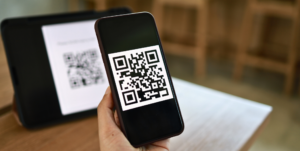When things are going well, saving for an emergency can seem unimportant. However, once an unexpected life event happens, having savings for it can feel extra significant. (We are talking about true emergencies here – like a pandemic, an unexpected visit to the emergency room or an emergency home/car repair. We are not discussing an unexpected sale on your favorite brand of shoes.) Having a fund set aside for emergencies can turn a true crisis into more of an inconvenience, and allows you peace of mind that if something unfortunate would happen, you’d have a financial cushion in place.
Having an emergency fund can help you with the following things:
- First and foremost, it will keep you prepared.
- It will help you to avoid debt. There is of course other ways you can quickly access cash, like borrowing, but keep in mind this comes with interest, fees, and possible additional penalties. Debt can quickly snowball if you’re not able to pay it off at the end of the month.
- It will give you peace of mind and less stress. Being prepared with an emergency fund gives you self-assurance that you can handle life’s unexpected events without adding money worries to your list.
Where should you keep an emergency fund?
Your emergency fund should be kept in a safe place where you can get to it easily and quickly.
- A separate savings account connected to your checking account.
- If the emergency fund is just for you, choose an individual account.
- If a spouse or someone else will possibly need to access the account, you may want to consider a joint account. (Learn about joint accounts here.)
- A money market account that comes with a debit card or allows check-writing. (Bank Five Nine’s Money Market accounts comes with both, as well as ATM access.)
How big should an emergency fund be?
The standard advice or rule of thumb is that you should save at least 3-6 months of living expenses for emergencies. Keep in mind that the size of an emergency fund can vary depending on your lifestyle, monthly costs, income, and number of people in your household. We suggest starting with a goal of 3-6 months, and then work your way up to a year. (Something many people learned from the COVID-19 pandemic is that an unexpected crisis can drag on for a lot longer than anyone is prepared to handle.)
What are a few ways to start saving for an emergency fund?
- Make a budget (or look at your current one) to see where, and how much, you can start saving money to put towards an emergency fund.
- Automate your savings to make consistent contributions. Set up an automatic transfer from checking to savings each paycheck via direct deposit. This helps remove the temptation to spend extra money in your budget.
- Save part or all of your tax refunds, economic impact payments and rebates and put them toward boosting your emergency fund.
- If you have the opportunity, gradually increase your contributions. If you are just starting your emergency fund and feel overwhelmed – start small. After you get used to saving, you can increase the dollar amount over time.
Having an emergency fund gives you some financial control over how you react to unforeseen events. As a bonus, this also can help you stay on track for other savings goals.
Bank Five Nine has the products and expertise to help you through budgeting, savings, credit, and more. Contact one of our personal bankers to learn more!





